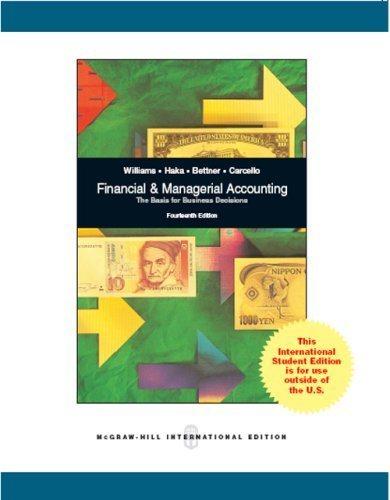Question
Dan owns 50 of 100 shares of stock in ABC Corporation. ABC owns 100% of DEF Inc. DEF owns 40 of 100 shares of GHI
Dan owns 50 of 100 shares of stock in ABC Corporation. ABC owns 100% of DEF Inc. DEF owns 40 of 100 shares of GHI Corporation. Dan owns 60 shares of GHI. What is the tax effect if GHI redeems the 60 shares of GHI that Danowns for $200 (assume Dan is in a 39% tax bracket)? How would your answer change if Dan owned no shares in ABC, but his son owns 50 shares of ABC?
Am I right in thinking that Dan has ownership rights in all three companies because of the stock attribution rules. Would Dan's tax effect on the redemption of the 60 shares be the $200 x 39% or would this situation qualify for a disproportionate redemption and receives sale or exchange treatment? Also the second part about Dan's son owning 50 shares of ABC would mean that Dan is also considered to own the stock due to the stock attribution rules?
Step by Step Solution
There are 3 Steps involved in it
Step: 1

Get Instant Access to Expert-Tailored Solutions
See step-by-step solutions with expert insights and AI powered tools for academic success
Step: 2

Step: 3

Ace Your Homework with AI
Get the answers you need in no time with our AI-driven, step-by-step assistance
Get Started


